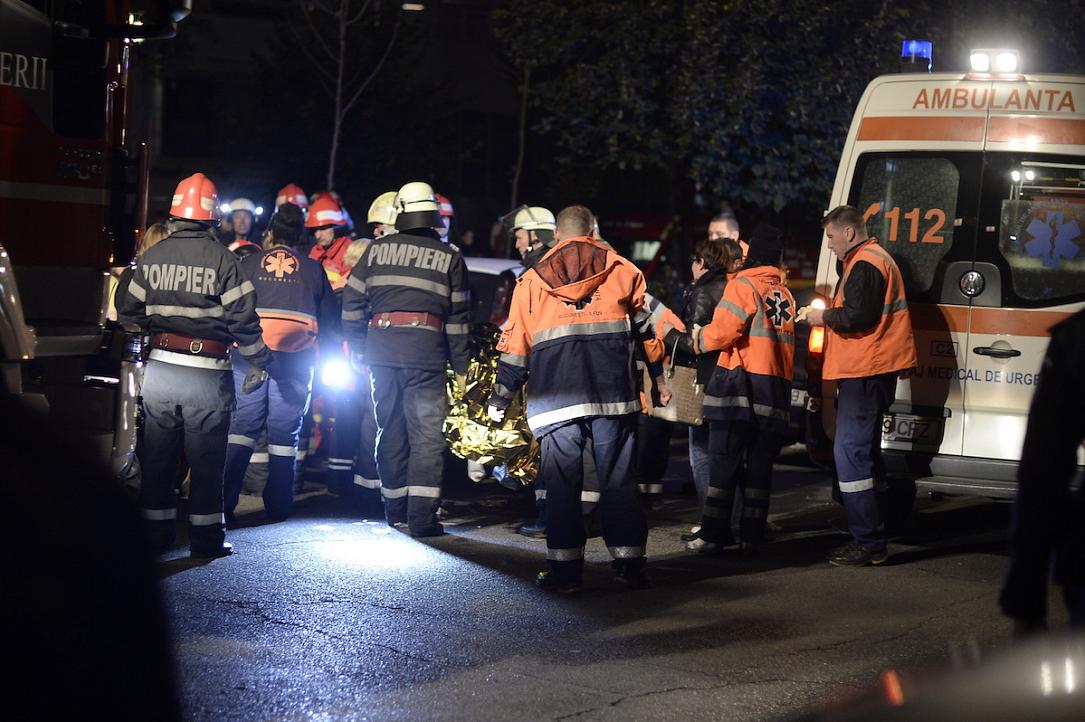Eight years after the Colectiv club fire, Romania still lacks a dedicated center for severe burn injuries



Eight years after the Colectiv nightclub fire, Romania still lacks centers for treating severe burn victims, despite promises made by succeeding governments. Moreover, some clubs, schools, and hospitals in the country still have significant deficiencies when it comes to fire safety.
The deadly fire broke out on the night of October 30, 2015, at the Colectiv nightclub in Bucharest, during the launch of a new album by the rock band Goodbye to Gravity. Half an hour after the concert began, the club's ceiling was engulfed in flames due to pyrotechnics. Surveillance cameras recorded how the spectators began to stampede toward the exit. An early report by the prime minister's office found that the emergency response on the night of the fire was uncoordinated and filled with improvisations.
Many of the 65 victims who lost their lives died due to infections acquired in hospitals. Romania also lacked treatment centers for major burn victims, as it does today. Nevertheless, the Social Democratic minister of health at that time, Nicolae Bănicioiu, said that Romania had everything it needed to treat the victims of the tragedy.
The authorities' incompetence and untruths led to more deaths, protests, and, finally, the resignation of the Victora Ponta government. Over 30,000 people protested in early November 2015 with the message, "Corruption kills!"
The first definitive convictions in this case came in May 2022, nearly seven years after the tragedy. Cristian Popescu Piedone, who was mayor of District 5 at that time, was sentenced to four years in prison. The three owners of the Colectiv club received sentences of 11 years, eight years, and six years, the pyrotechnician received a sentence of six years and ten months, and the two firefighters from ISU Bucharest each received sentences of eight years and eight months, Euronews Romania reported.
The convicted individuals were required to pay moral and material damages of over EUR 50 million to the victims and their families. The only one who escaped both paying damages and imprisonment after just one year and one month behind bars was mayor Cristian Popescu Piedone. He was acquitted by the High Court of Cassation and Justice on the grounds that the act was not covered by criminal law. After his time in jail, the mayor, who was elected again after the Colectiv fire and after his conviction, resumed his mandate without any legal restrictions.
More importantly, Romania still does not have, even today, eight years after the Colectiv nightclub fire, any centers for treating major burn victims, despite a government act dating back to 2014 that provided for the construction of 4 centers: two in Bucharest, one in Timisoara, and one in Targu Mures.
In the meantime, authorities have redoubled their promises regarding the construction of 3 centers - in Timisoara, Targu Mures, and Bucharest. The only one of these centers under construction is the one in Timisoara. The construction of the centers in Bucharest and Targu Mures is expected to begin this autumn, according to the Ministry of Health.
These three centers are supposed to be built through a project funded by the World Bank. Once they are completed, Romania is expected to have 26 intensive care beds for severe burn patients and 26 intermediate intensive care beds.
In the days following the explosion at an LPG station in the town of Crevedia in August this year, the Ministry of Health publicly claimed to have 34 "beds for major burn patients" in 6 hospitals in Romania. However, there are reports and official documents, also from the Ministry of Health, both more recent and older, noting that there are no places in the country for the proper treatment of these patients. Today, Romanian hospitals have only 24 beds in functional units for burn patients - which can treat burns of medium complexity up to a certain level. As a result, twelve of the victims of the Crevedia explosions had to be transferred to centers abroad, according to HotNews.
"There is progress, but we are still far from what was promised at the time. Perhaps the promises were too big, or maybe the commitment of those who were supposed to make things happen was too small. I believe we still have a lot of work to do, but, on the other hand, as I said before, I have seen some amazing things here at the Emergency Hospital. So progress has been made, and more work remains," Klaus Iohannis said on August 29 during a visit to the Floreasca Emergency Hospital in Bucharest.
radu@romania-insider.com
(Photo source: Inquam Photos/Florin Cornel)